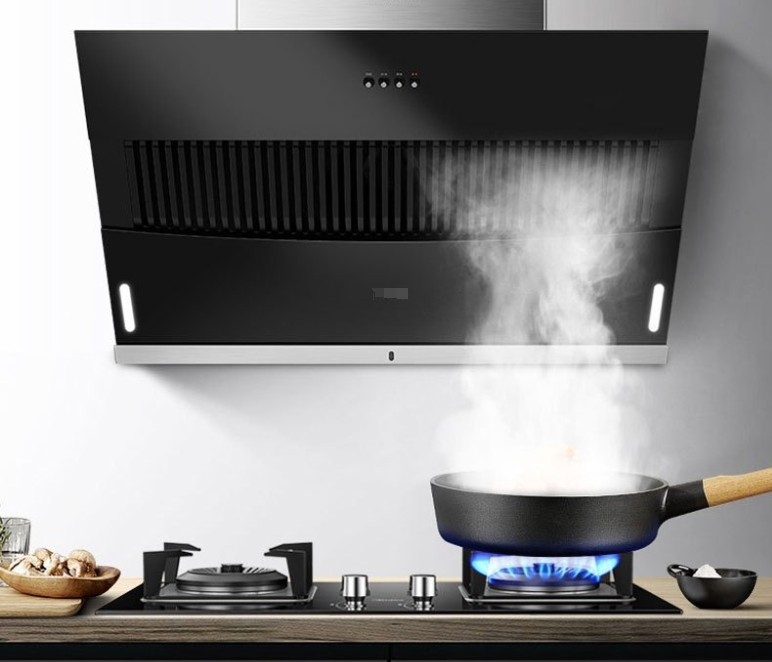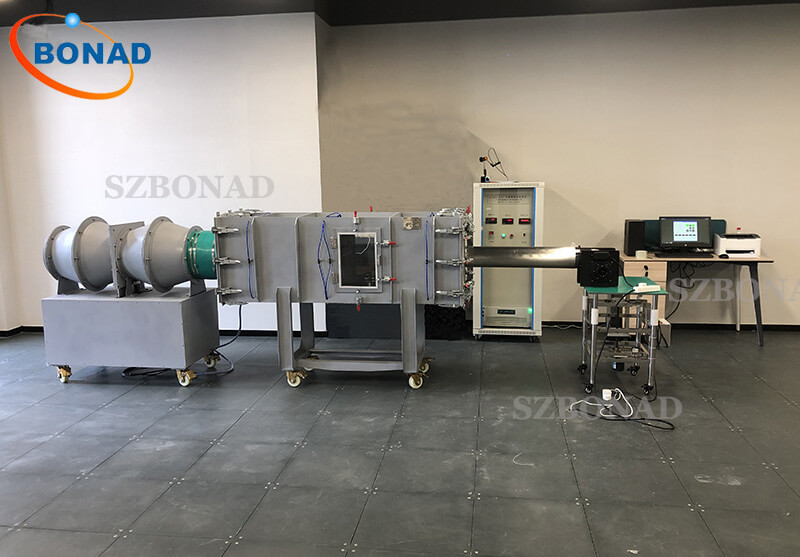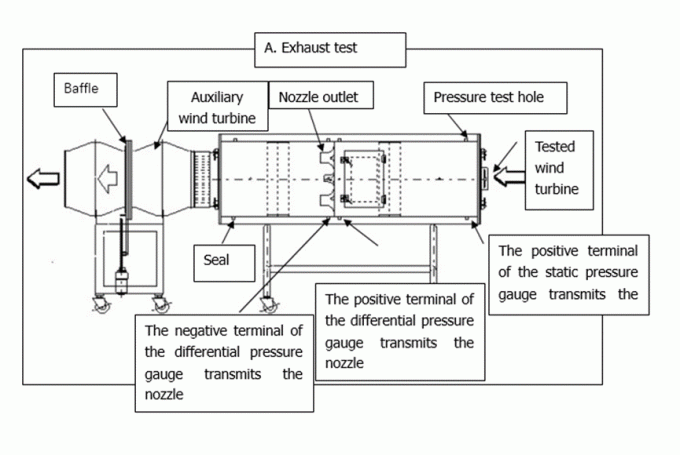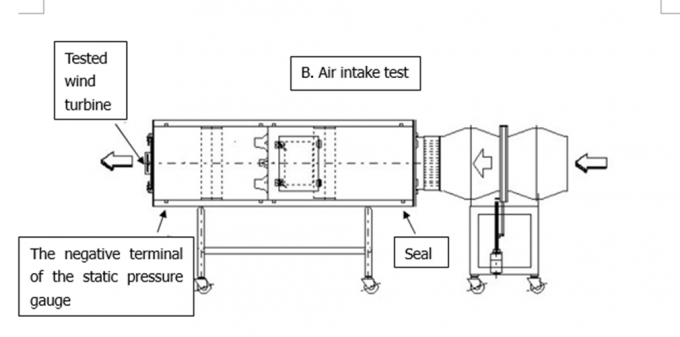Product Description:
Name:IEC 61591 2014 Range Hood Air Performance Air Volume Testing System
Type:BND-61591
Product Overview
Product Name: IEC 61591 Range Hood/kitchen hood/ exhaust hood Air Volume Measurement Test system
Model Specification: BND-61591
Our air volume measurement test system is meticulously crafted to meet international standards such as IEC61591, EN61591, GB/T1236, and GB/T14806. This device is essential for accurately measuring the air volume of cooling fans, axial flow fans, ventilation fans, range hoods, and air blowers.
Specifications
Standard Compliance:
IEC61591
EN61591
GB/T1236
GB/T14806
Key Features:
1. Multi-Nozzle Wind Chamber Structure: Select the corresponding nozzle based on the measured flow rate to cover a wide range of flow rates.
2. Dual Functionality: Suitable for both air outlet and air intake tests.
3. Auxiliary Fan: Measure full-range performance curves with zero flow and zero static pressure.
4. Automatic Testing: Computerized automatic testing, calculation, and data output with graphical results display.
5. Test Items: Measure P-Q characteristics (flow rate vs. static pressure), Q-η characteristics (flow rate vs. efficiency), fluid dynamic efficiency (FDEhood), speed, current, and power.
Performance and Characteristics:
*High accuracy and reproducibility
*Easy operation with human-computer dialogue interface
*Time-efficient testing process (only ten minutes per test)

Applications
Our Air Volume Measurement Test Device is ideal for:
Cooling Fans
Axial Flow Fans
Ventilation Fans
Range Hoods/kitchen hood/exhaust hood
Air Blowers
This kitchen hood Air Performance Air Volume Testing System meets the rigorous requirements needed for scientific research and production processes in various industries.
How It Works
The basic principle of our air volume measurement test device involves simulating the actual working state of the test product in a wind tunnel. The auxiliary fan ensures that the test product's outlet pressure meets the required conditions. By measuring the air pressure difference on both sides of the nozzle in the wind tunnel, we can calculate the corresponding wind speed using standard formulas. Finally, by multiplying the nozzle area by the relevant flow coefficient, we obtain the air volume.
Technical Parameters:
| Item | Unit | Scope | Accuracy | Other |
| Air volume (flow rate) | m³/min | 0~50 | ±2% | |
| Static pressure/differential pressure | Pa | 0~2000 | Full scale ±0.055% | Response time does not exceed 90ms |
| Voltage | V | 0~300V | ±(0.15% of reading + 0.35% of range) | 10Hz≤f<440Hz |
| Current | A | 0~5mA 0~20A | ±(0.15% of reading + 0.35% of range) | 10Hz≤f<440Hz |
| Power | W | 0~5000W | ±(0.15% of reading + 0.50% of range) ±(0.25% of reading + 0.50% of range) | 10Hz≤f<45Hz 45Hz≤f<440Hz |
| Temperature | °C | -20~80 | ±0.2°C | With a temperature gauge with a display accuracy of at least 0.1°C |
| Humidity | % | 0~100 | ±3%RH | Humidity meter with 0.1%RH |
| Atmospheric pressure | kPa | 0-200 | ≦±200Pa | Barometric pressure sensor |
| Speed (standard configuration) | RPM | 0-5000 | ±5 RPM | Measuring distance 5~100 cm |
1. Measuring Air Volume Range: (0.2 m³~50 m³)/min ±1%
2. Static Pressure: 0~1250Pa ±0.2%
3. Differential Pressure: 0~1250Pa ±0.2%
4. Speed: 0~5000 rpm ±0.5%
5. Air Temperature: 0~50℃ ±0.5℃
6. Air Humidity: (5~99)%R﹒ H ±5%
7. Atmospheric Pressure: 94000~106000 Pa ±200 Pa
8. Sample Power Supply Electrical Parameters: Voltage AC 0~300V ±0.5%
·Current AC 0~5A ±0.5%
·Power 0~1000W ±0.5%
9. Sample Power Supply Variable Frequency Regulated Power Supply: Input Voltage: AC 220V 50HZ
·Output Voltage: AC 0-110V-220V-300V continuously adjustable,
·Output Frequency: 50HZ or 60HZ
·Output Power: 0-1000W
10. Laboratory Power Supply: AC 380V, 50HZ; Maximum power: 5KVA; Ground wire must be grounded.
11. Laboratory Environment: Temperature: 20℃±5℃
·Humidity: 30%--80%
·Atmospheric Pressure: Normal
·After completing a test, our software automatically calculates: Maximum Static Pressure (Pa(max) Pa)
·Maximum Air Volume (Q(max) m3/min)
·Static Pressure at Specified Air Volume (7m3/min) Pa(7m3/min) Pa
·Main Motor Input Power at Specified Air Volume (7m3/min): P W
·Total Pressure Efficiency at Specified Air Volume (7m3/min): η %
·Fluid Dynamic Efficiency: FDEhood %
·Optimal Efficiency Metrics: Air Volume Q, Static Pressure Pa, Power W
·Impeller Speed at Maximum Air Volume: RPM
·Characteristic Curves for Static Pressure Pa and Air Volume Q at various pressures (e.g., 5 Pa, 15Pa, 30Pa)
Test Software
1. Uses WinXP operating system with a window interface and Chinese display.
2. Collects all measured data in real-time as numbers and tables.
3. Automatically analyzes original data after tests are completed.
4. Provides historical data query functionality based on test date, number, model, etc.
5. Customizable interface and data per user requirements.
Test principle and layout:
This solution adopts the blowing test mode, and controls the air volume by stepless adjusting the frequency of the auxiliary fan through the frequency converter; the middle of the air chamber is composed of a flow equalizing orifice plates, nozzles, starting actuators and nozzle plates; the chamber interface size is 600mm×600mm. This system automatically calculates the fan air volume by measuring the pressure difference before and after the nozzle. When the equipment is running, the air performance test device is run on, the air volume of the auxiliary fan is controlled by controlling the opening and closing combination of the nozzles and the current frequency of the frequency conversion device. The static pressure under the corresponding air volume is measured by a high precision micromanometer, so as to obtain the corresponding data of the air volume and air pressure of the specimen, and draw the air volume and air pressure curve. The system is compatible with the air performance test of two types of range hoods: external exhaust type A and suction type B.




